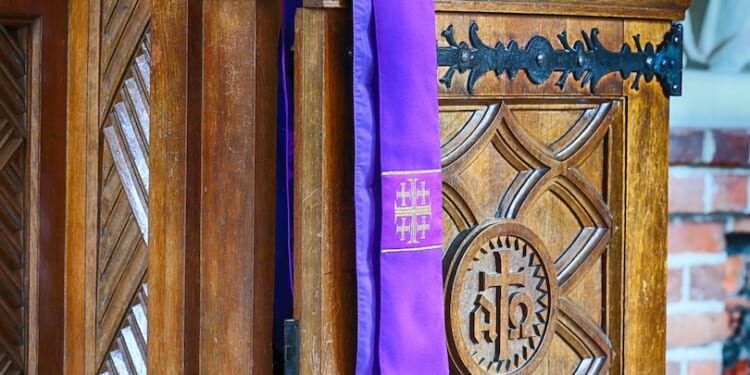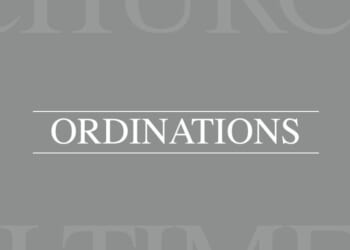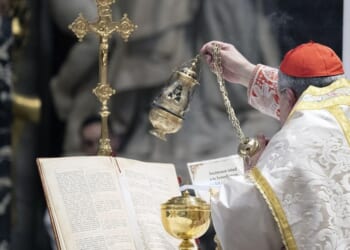OLYMPIA, Washington (LifeSiteNews) — The state of Washington officially agreed to drop all attempts to enforce a law that threatened Catholic and Orthodox priests with jail time and fines for not violating the Seal of Confession.
Senate Bill 5375 was the latest iteration of attempts by Democratic Sen. Noel Frame to try to coerce priests and other religious officials to report penitents to law enforcement if they confessed alleged abuse. The violation of the Seal of Confession is an excommunicable offense in the Catholic Church. Both Frame and liberal Democratic Governor Bob Ferguson cited their professed Catholic faith during debate over the bill.
However, the law has been permanently enjoined since the summer by the Western District Court of Washington following a challenge brought by Catholic bishops. Orthodox churches brought a similar lawsuit against the law in the Eastern District Court of Washington.
These lawsuits culminated in settlements, announced today by Alliance Defending Freedom (ADF) and the Becket Fund for Religious Liberty, which permanently end any enforcement action by the state and county prosecutors.
An ADF attorney explained the importance of the settlements.
“The First Amendment guarantees that governments cannot single out religious believers for worse treatment,” ADF Senior Counsel and Vice President of Appellate Advocacy John Bursch stated in a news release.
“Washington was targeting priests by compelling them to break the sacred confidentiality of confession while protecting other confidential communications, like those between attorneys and their clients,” Bursch stated. “That’s rank religious discrimination. We are pleased the state agreed to swiftly restore the constitutionally protected freedom of churches and priests.”
The Becket Fund for Religious Liberty, which represented the Catholic bishops, similarly celebrated the settlement in a statement emailed to LifeSiteNews.
“Washington was wise to walk away from this draconian law and allow Catholic clergy to continue ministering to the faithful,” President and CEO Mark Rienzi stated. “This is a victory for religious freedom and for common sense. Priests should never be forced to make the impossible choice of betraying their sacred vows or going to jail.”
The law had faced an onslaught of legal pressure in addition to the two lawsuits.
Similarly, the federal Department of Justice asked to intervene in the case and announced an investigation into the state for passing the law.
The Catholic bishops had made clear that they would not comply with the law.
Throughout debate on the law, which had gone through several different versions in the past few years, sponsors and supporters ignored numerous warnings about the religious liberty problems from a Catholic bishop, Protestant ministers, and legal scholars.
Legal scholar Jonathan Turley, a professor at George Washington University, criticized Democrats for “adding a fifth stage for confessions under a new law” and called the bill “blatantly unconstitutional.”
“Putting aside the obvious violation of the sanctity of the confessional, it presents a novel problem for priests if they both encourage the faithful to unburden themselves while at the same time reminding them anything that they say can and will be used against them in a court of law,” he wrote on his personal commentary website.
“In my view, the law is facially unconstitutional as an attack on the free exercise of religion,” Professor Turley, who is Catholic, wrote. He also noted that Canon 983 forbids breaking the Seal of Confession and explained how courts have traditionally protected religious practices.
The Catechism of the Catholic Church states:
Given the delicacy and greatness of this ministry and the respect due to persons, the Church declares that every priest who hears confessions is bound under very severe penalties to keep absolute secrecy regarding the sins that his penitents have confessed to him. He can make no use of knowledge that confession gives him about penitents’ lives. This secret, which admits of no exceptions, is called the “sacramental seal,” because what the penitent has made known to the priest remains “sealed” by the sacrament.
Nevertheless, Sen. Frame ignored these warnings, instead deciding to berate Catholic Bishop Frank Schuster during one hearing.

















